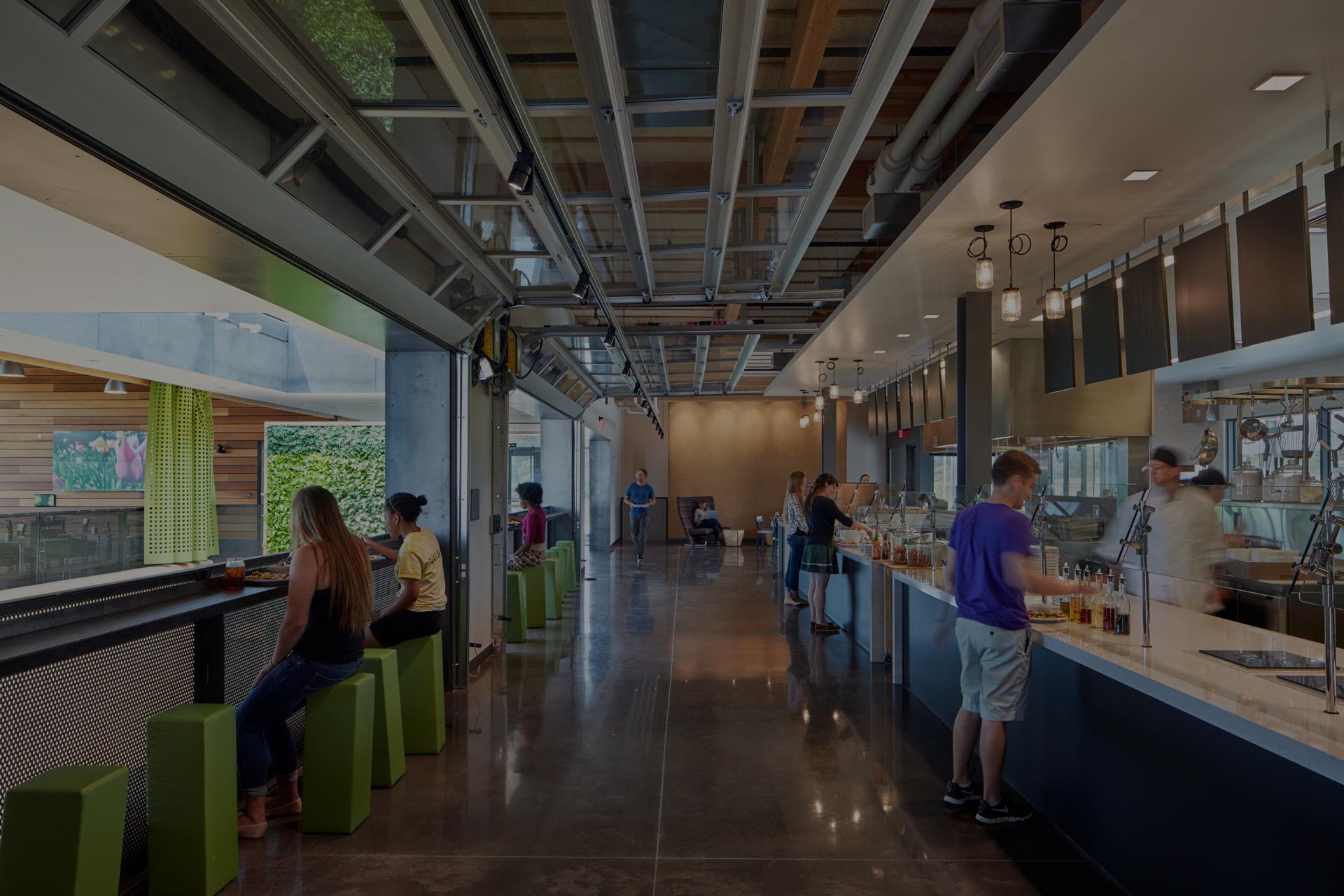
Where We Grow
Elsalma Fields
The Elsalma Fields, named for Sebastian Mueller's two daughter Elsa and Alma, allows Eden Hall to conduct more land-intensive projects and crop research.
Aquaculture Lab
The aquaculture lab houses a large 1,500-gallon commercial style freshwater aquaculture system, a smaller freshwater aquaponics system, fish breeding facilities and a number of 20-gallon tanks.
Moveable Hoop House
The hoop house is built on tracks to allow the gardens to be fully open to the elements. In inclement weather the gardens are covered to protect against crop damage. The gardens are also covered to extend the growing season.
High Tunnel
The solar high tunnel is heated by our solar thermal system, and allows us to grow vegetables all year long–through the use of renewable energy. The walls can be automatically lowered or raised to regulate temperature.
Agroecology Garden
The agroecology demonstration garden provides an entry-point for learners to understand various aspects of food system sustainability. Undergraduate and graduate students in Agroecology courses and in K-12 programs use the garden to practice making resource management decisions that build healthy agroecosystems.
Orchard
As stewards of a heritage apple orchard, we work to rehabilitate and maintain the health and fruitful harvests of the 22 large, half-century old trees. The space and its produce are used as part of curricula, outreach projects, and community engagement.
Maple Sugar Bush
Eden Hall is fortunate to have an abundance of red and sugar maple trees known for their abundance of sap. In the winter months we tap trees, collect the sap, and evaporate the liquid to increase concentration of sugar, finally ending up with delicious maple syrup.
Shiitake Laying Yard
Started as part of a USDA grant, we cut logs from our woodland and inoculate them with mushroom spores to grow Shiitake. This work is part of an effort to explore alternative methods of generating income and diversifying farm production.
Apiary
Our apiary currently has seven hives and our bees promote beneficial pollination while enhancing food production and providing honey. Additionally, the hives increase awareness of the role of pollinators in growing our food and local ecosystems.
Food & Farm
At Eden Hall Campus, we have a special relationship with food. We use what is grown by our students in the dining halls and cafes, and research and implement the most sustainable methods to raise crops. Our organic gardens, high tunnel and hoop houses extend our growing seasons year-round. We are proud of what we produce, and take great care of its preparation, from plow to plate.
“I am always excited to see and learn about progressive agricultural methods which attempt to increase sustainability while maintaining yield and profit. In this sense, I think of Eden Hall as an academic demonstration farm that can take risks ordinary farmers might not.”
—Scott Fisher, M.A. in Food Studies '18
What we produce
Using the most sustainable methods to grow possible, Eden Hall Campus produces a wide variety of foods and plants. What we grow goes into our kitchens on campus and is also sold to local partners to provide fresh and natural produce for their communities.
Life at Eden Hall
Center for Regional, Agriculture, Food & Transformation (CRAFT)
An affiliate of Chatham's Food Studies program, the Center for Regional, Agriculture, Food & Transformation (CRAFT) provides resources, learning opportunities, and technical assistance on food systems, regional food cultures, and sustainable economies to individuals, organizations, and businesses. It offers ample opportunities for students to be involved in assistantships, research, and project engagement.
Eat at Eden Hall
Grab a plate: where to eat on campus
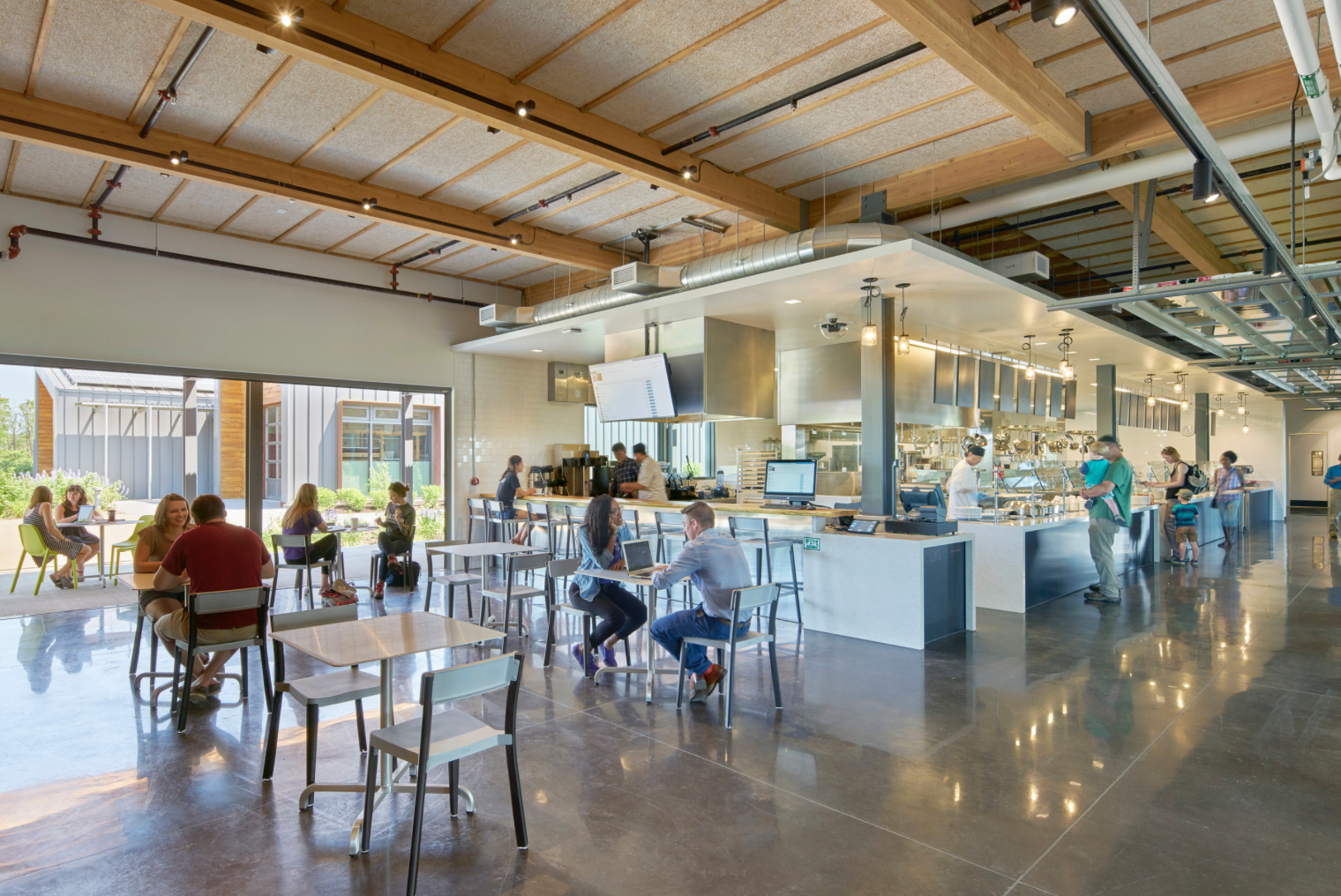
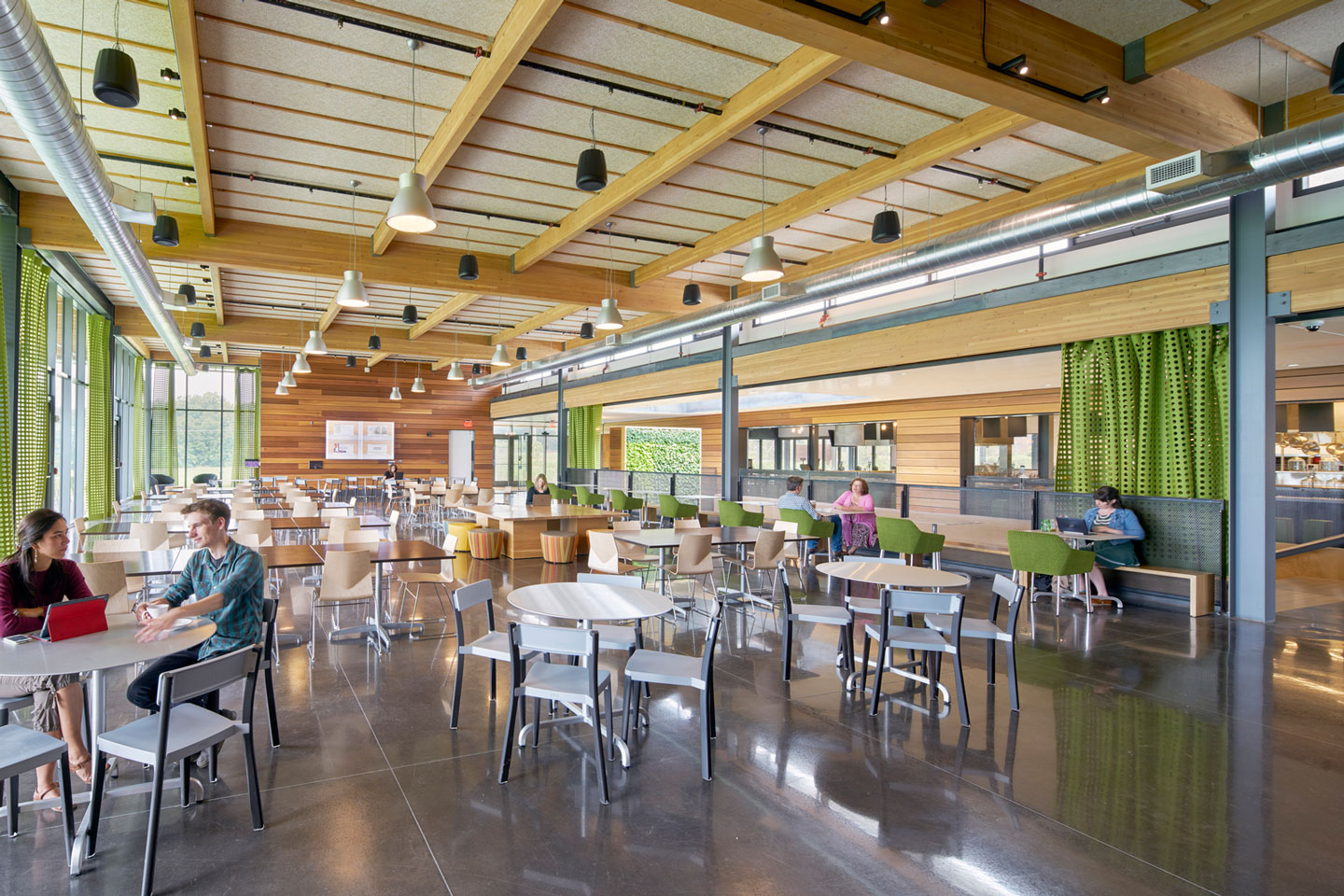
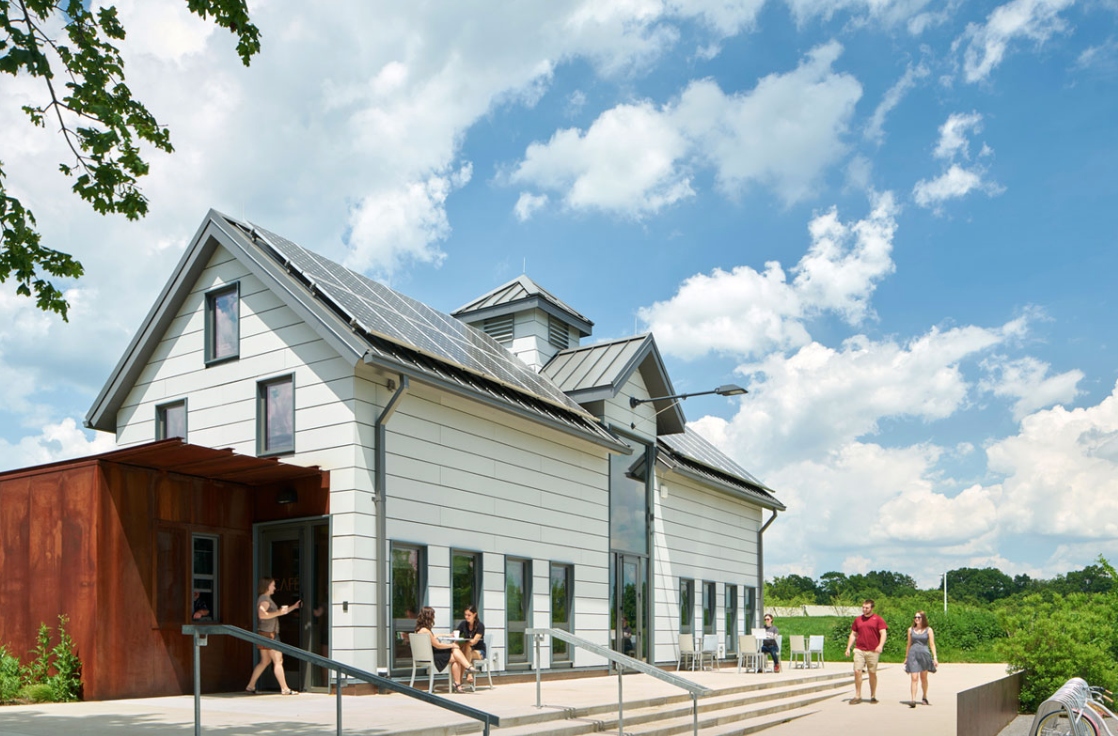
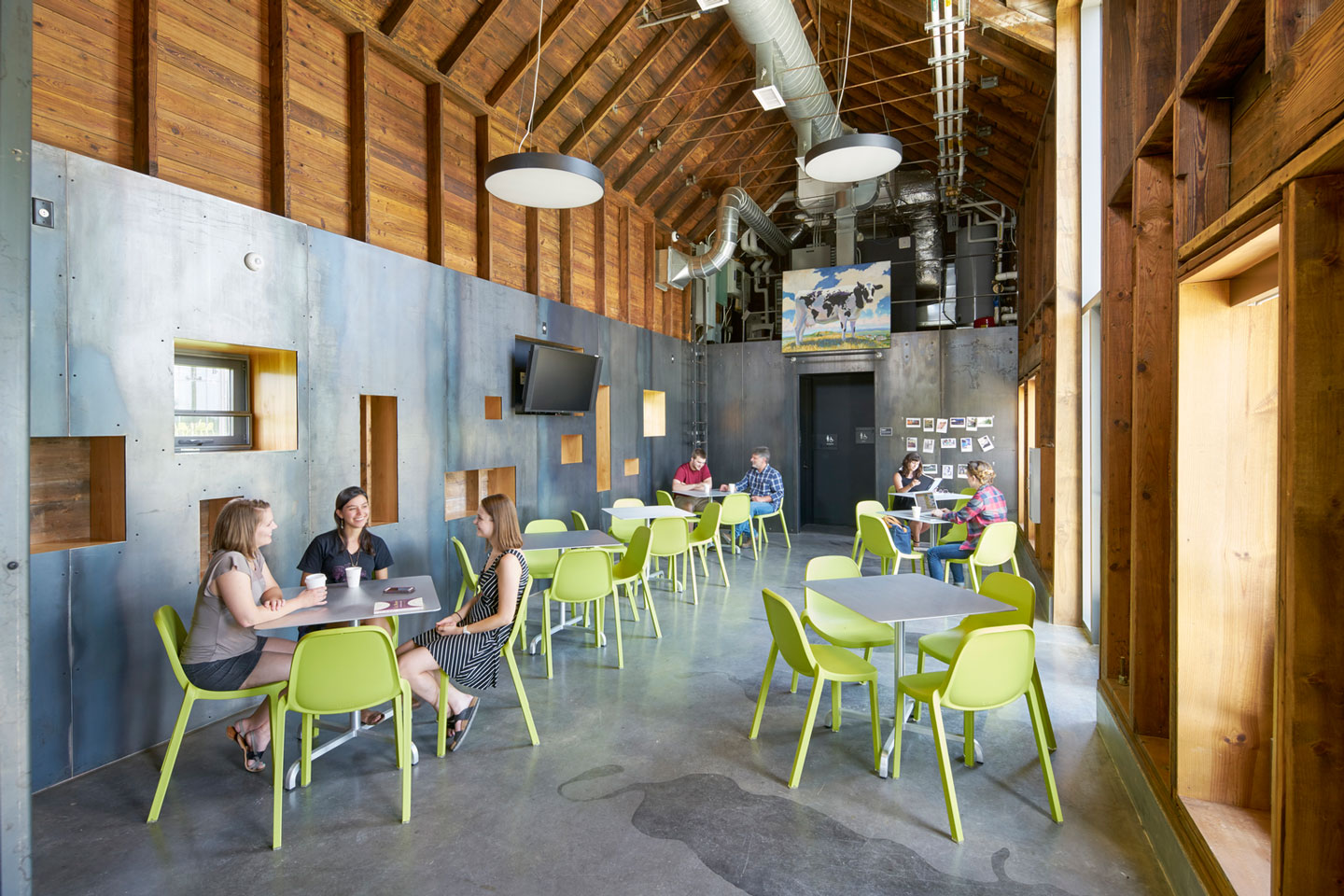
Local connections
To enhance the freshness of our food offerings without compromising our commitment to quality, Parkhurst, our food service partner and provider, maintains an innovative local purchasing program we call FarmSource™. It is an initiative to find and partner with some of the finest local growers, family-owned farms and other food producers in our communities.
Through FarmSource, we have created the infrastructure to get local products into the hands of our suppliers and onto the plates of our guests. This program greatly reduces the distance food travels from harvest to table. We also encourage our suppliers to focus their purchasing efforts on procuring from local food producers. At Eden Hall Campus, we are able to source produce and other items directly from the farm, often taking just minutes to get from the ground to your plate.
Today, Parkhurst works with more than 250 local farmers and producers, all within a 100-mile radius of our locations. We are proud to source more than 20% of our food locally, which represents $23.6 million in local purchases.
Dine @ Eden Hall
The Esther Barazzone Center is open to the public Monday-Friday for lunch from 11:00AM-1:30PM. For more information, call the EBC at 412- 365-1481 or email Parkhurst@chatham.edu.
SUSTAINABLE DINING – THE HIGHLIGHTS:
- Sustainable catering menu offers healthy alternatives for our guests.
We use the organic food grown on the Farm at Eden Hall and other locally sourced foods as much as possible. We even sourced our tableware locally! All of our plates were sourced from nearby Homer Laughlin China – located in Newell, WV.
Vegetarian, vegan, and gluten free food are standard options available to guests.
Compostable disposable products are utilized.
We partner with Ag-Recycle, a local commercial compost company to compost our waste. We collect food scraps in the kitchen, as well as after consumption, to collect as much as possible.
Our unique hood-system is heat-activated, dramatically decreasing its energy consumption. The heat that the hood system draws is stored and recycled to help control temperatures in the building.
The kitchen is mainly operated on Induction technology, and does not use gas. Induction works by transferring energy straight to the metal pan, rather than heating up an element and then transferring that heat to the pan. induction ranges can boil two quarts of water in less than 5 minutes!
Our Dining Services team carefully tracks and forecasts quantities of food to minimize waste.
